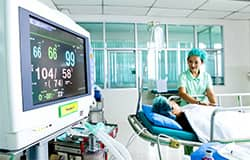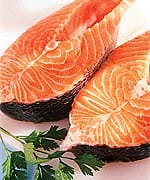|
Tuesday, January 13, 2015. A study published online on January 6, 2015 in the Journal of Parenteral and Enteral Nutrition found that critically ill surgical patients whose vitamin D levels were higher needed less respiratory support via the use of mechanical ventilation in comparison with those with lower levels.
Sadeq A. Quraishi, MD, and colleagues analyzed data from 94 men and women admitted to Massachusetts General Hospital's surgical intensive care units who required at least 48 hours of ventilation and survived more than 24 hours after its discontinuation. Blood samples collected upon admission were analyzed for plasma 25-hydroxyvitamin D [25(OH)D] levels.
Respiratory support was needed for an average of 6 days among the 57 subjects whose plasma vitamin D levels were lower than 20 ng/mL, in comparison with 3 days among the remainder of the group. The researchers estimated that each 10 ng/mL increase in vitamin D was associated with a 34% reduction in mechanical ventilation duration. Ninety-two percent of those with higher vitamin D levels survived for at least 90 days, compared to 67% of those with low levels.
"We hypothesize that ideal 25(OH)D levels are associated with optimal musculoskeletal health, effective regulation of innate as well as adaptive immunity, and expression of endogenous antimicrobial peptides," the authors write. "In turn, this may attenuate the effect of respiratory muscle weakness, systemic inflammation, and infections, which majorly impact the duration of respiratory support during critical illness."
"Further prospective studies are needed to validate our findings, to assess the potential benefit of optimizing 25(OH)D levels, and to identify the mechanism by which vitamin D may reduce the duration of MV in critically ill surgical patients," they conclude.
|







